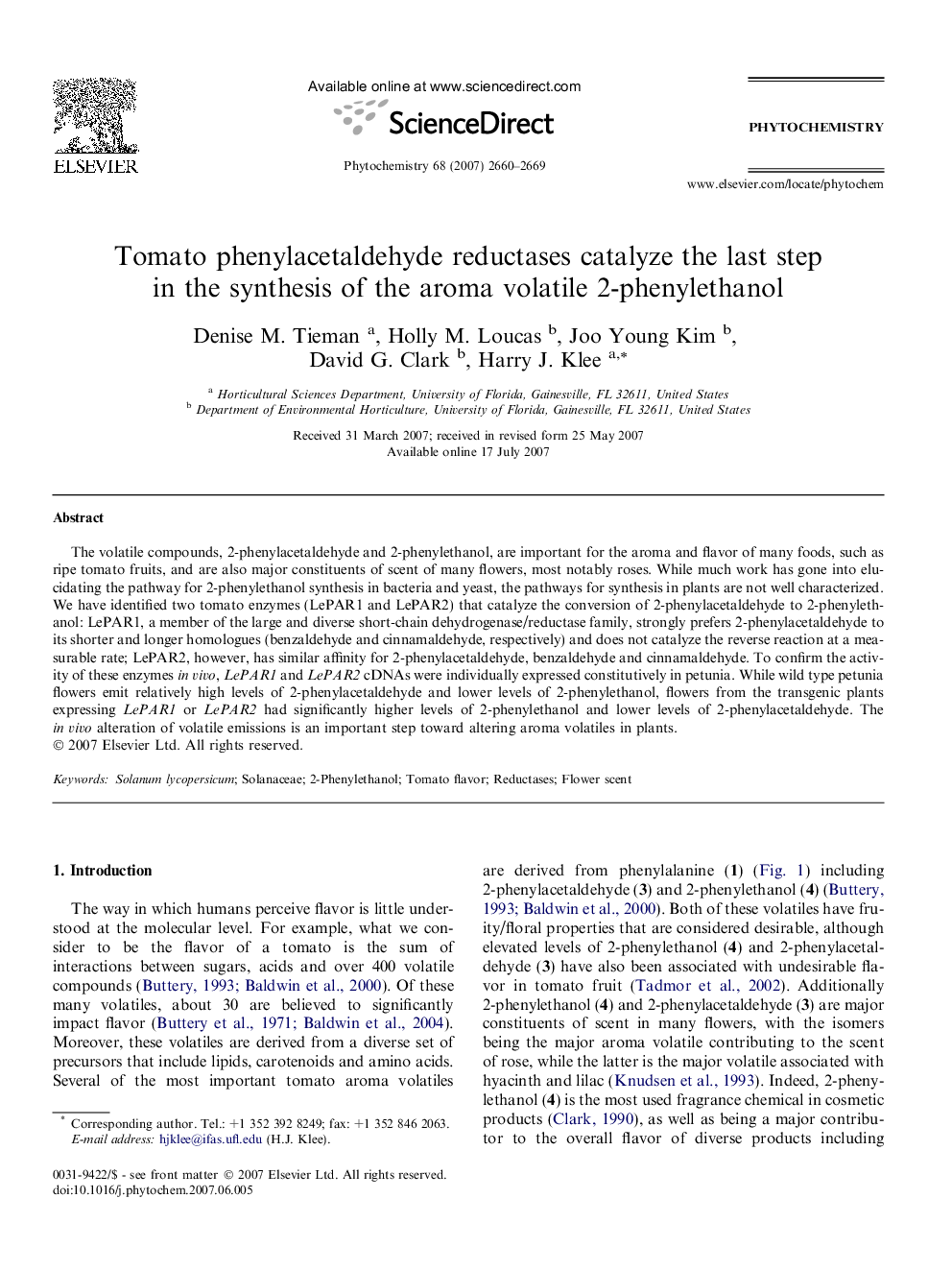| Article ID | Journal | Published Year | Pages | File Type |
|---|---|---|---|---|
| 5167356 | Phytochemistry | 2007 | 10 Pages |
Abstract
2-Phenylacetaldehyde and 2-phenylethanol are important contributors to tomato flavor and flower fragrance, particularly roses. Two tomato aldehyde reductases convert 2-phenylacetaldehyde to 2-phenylethanol in vitro. Wild type petunia plants have high levels of 2-phenylacetaldehyde and low levels of 2-phenylethanol. Transgenic petunia plants overexpressing one of these 2-phenylacetaldehyde reductases have high levels of phenylethanol and lower levels of 2-phenylacetaldehyde than wild type. This is an important step in determining the plant biochemical pathway to 2-phenylethanol.
Related Topics
Physical Sciences and Engineering
Chemistry
Organic Chemistry
Authors
Denise M. Tieman, Holly M. Loucas, Joo Young Kim, David G. Clark, Harry J. Klee,
